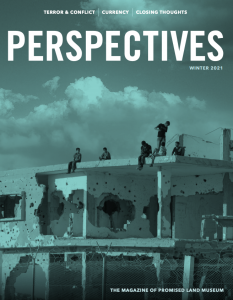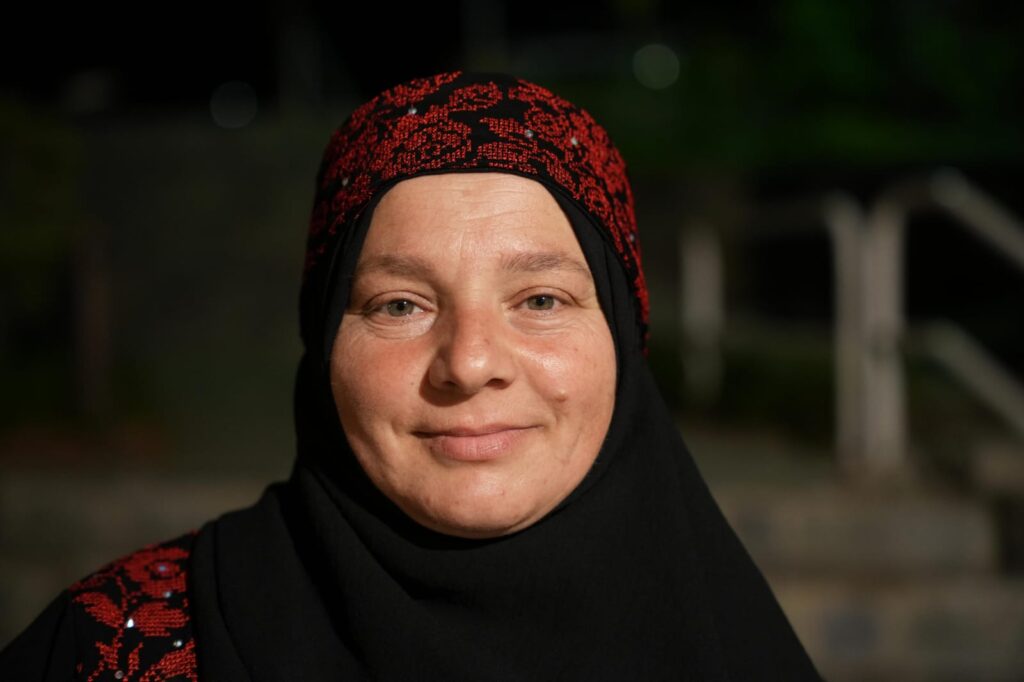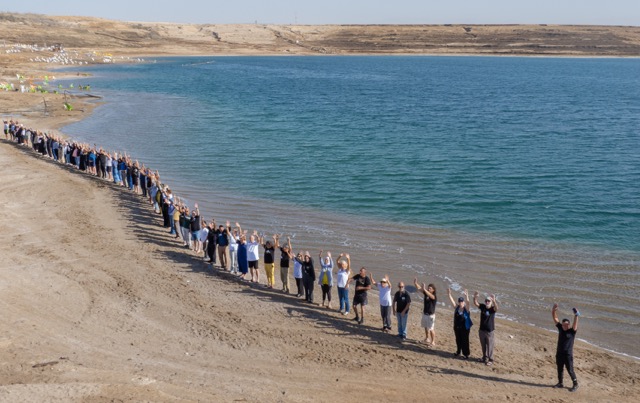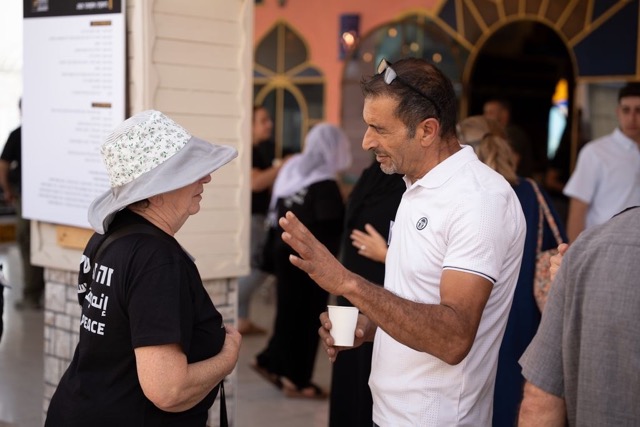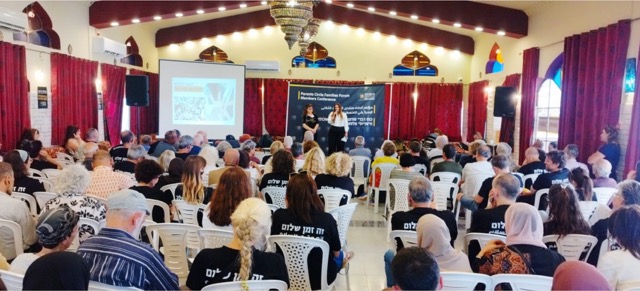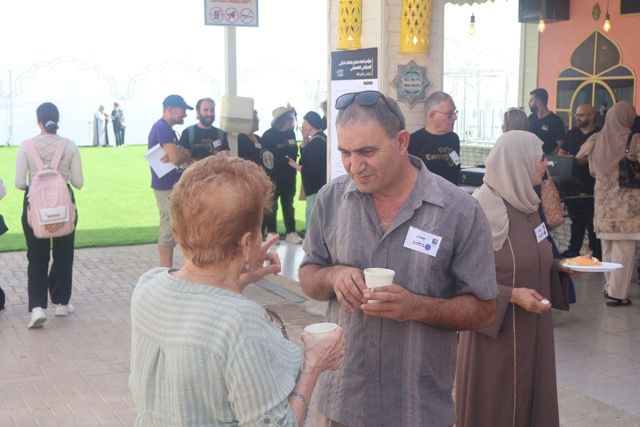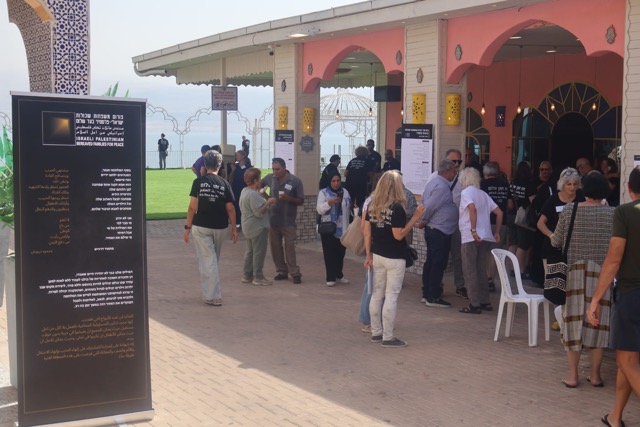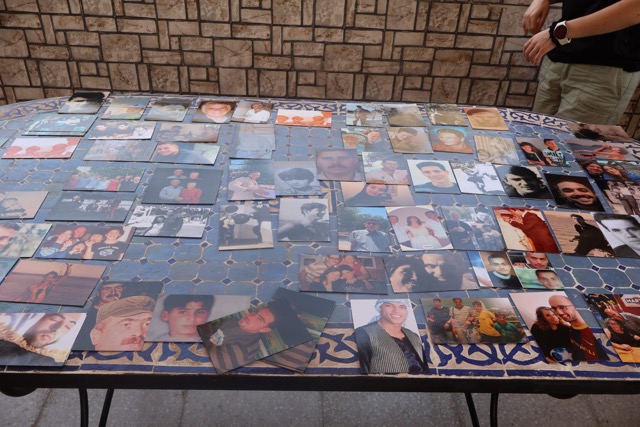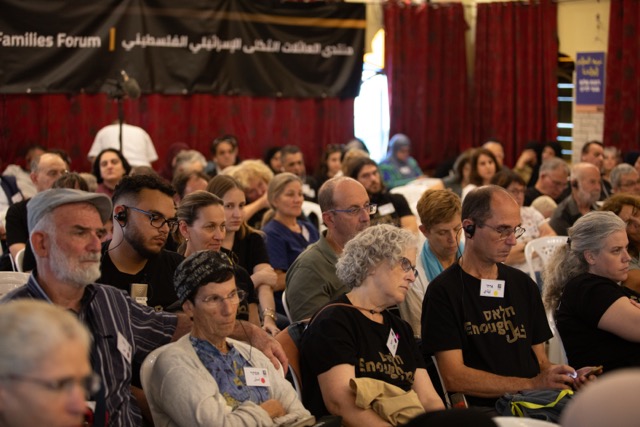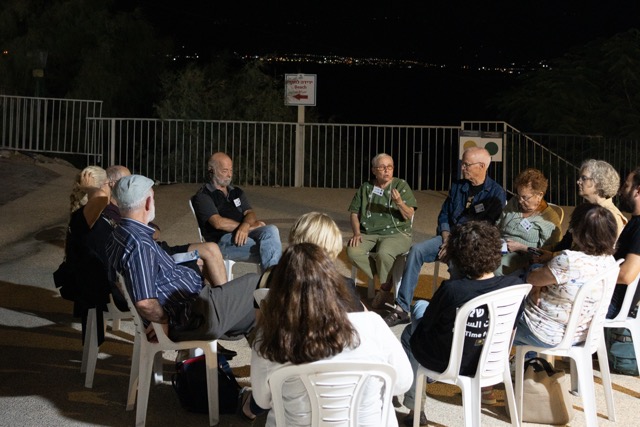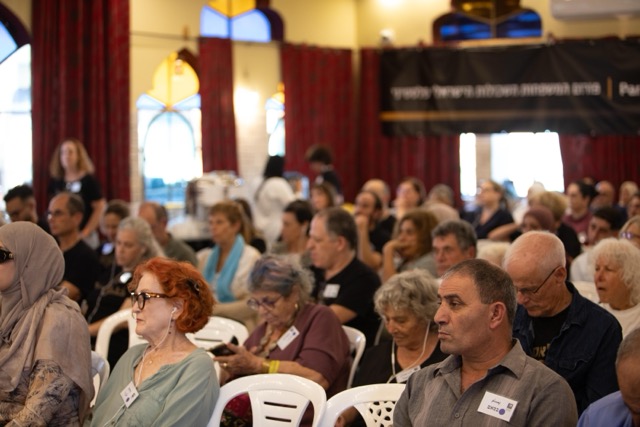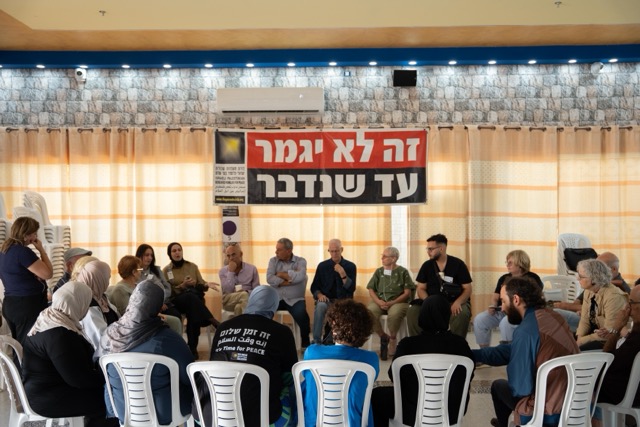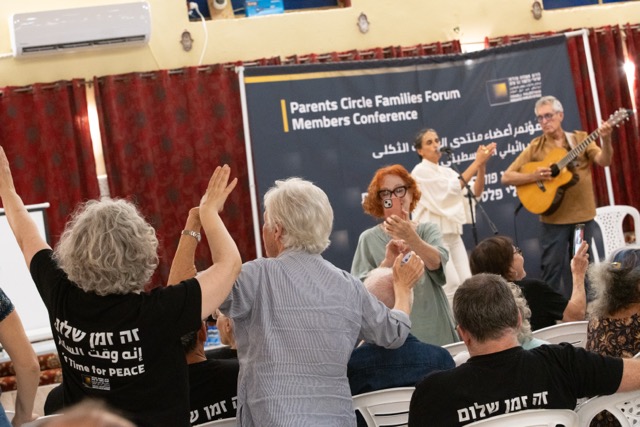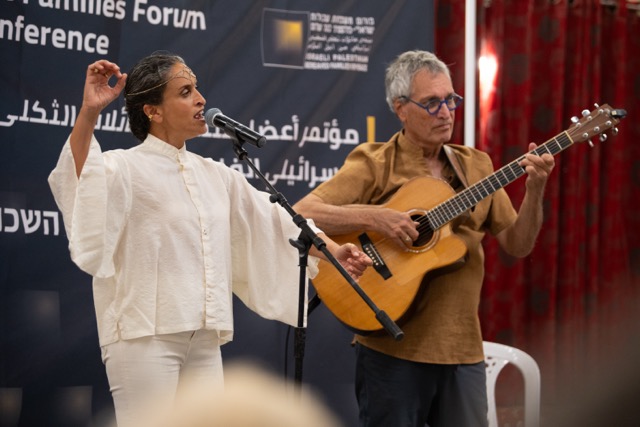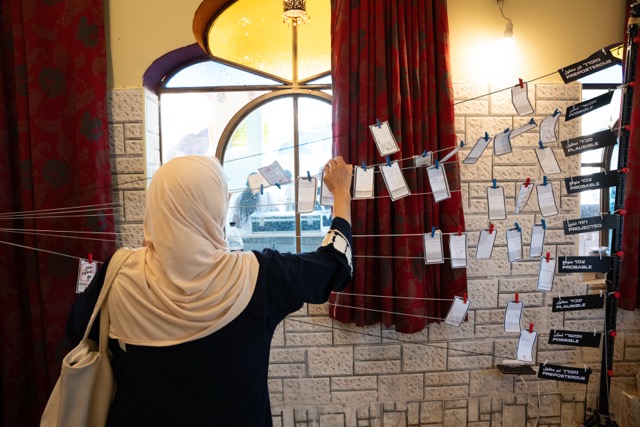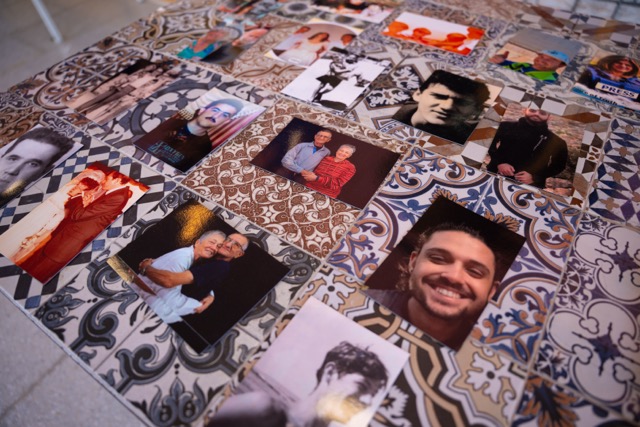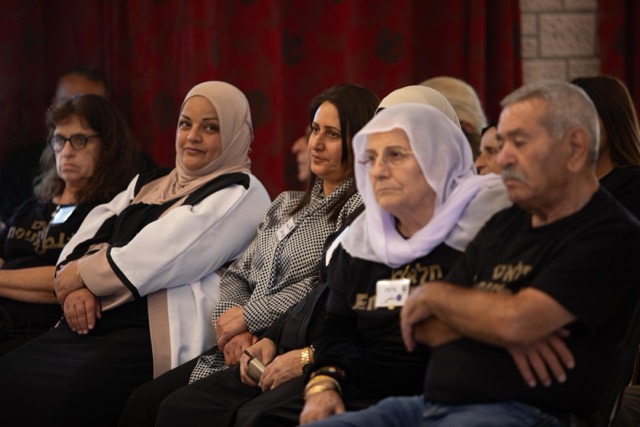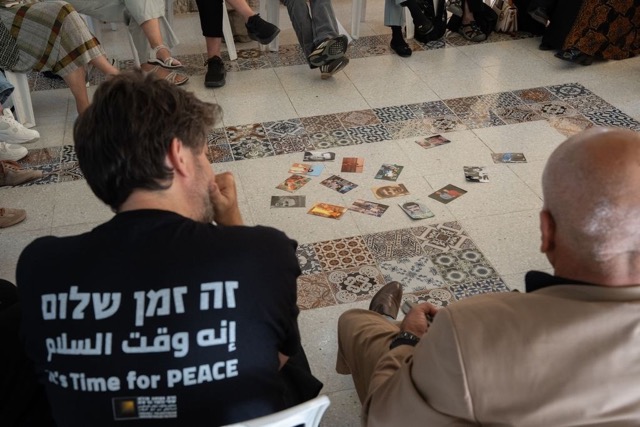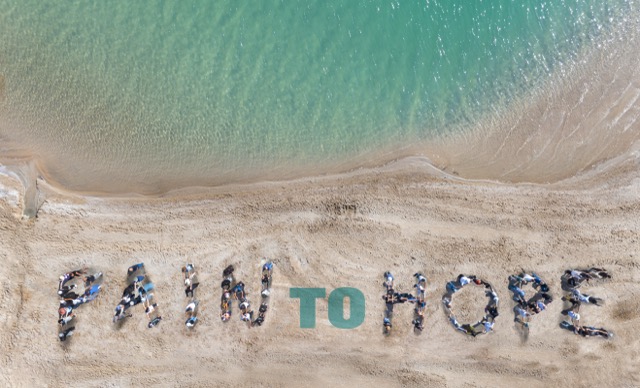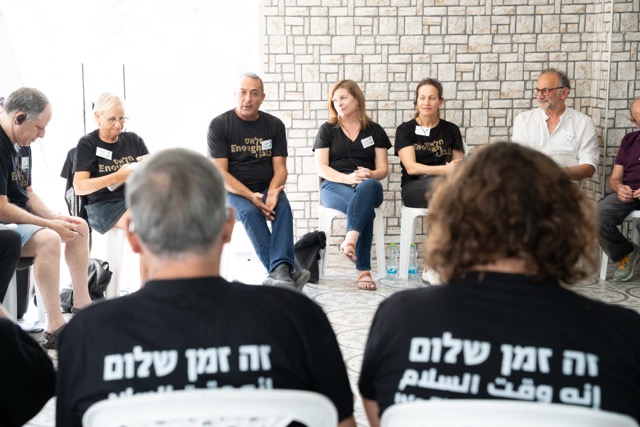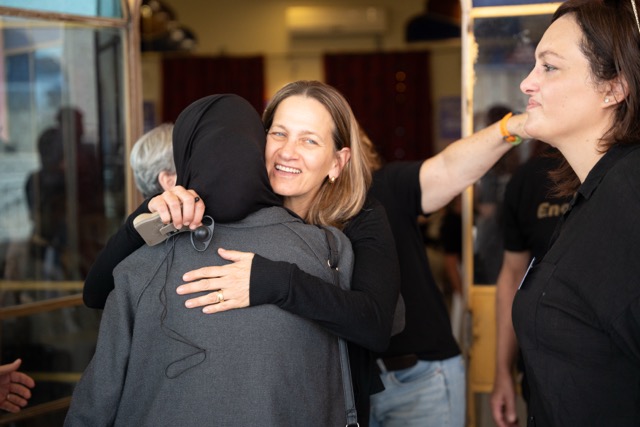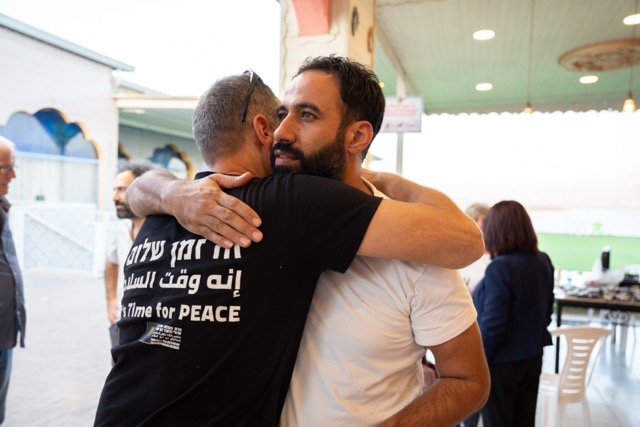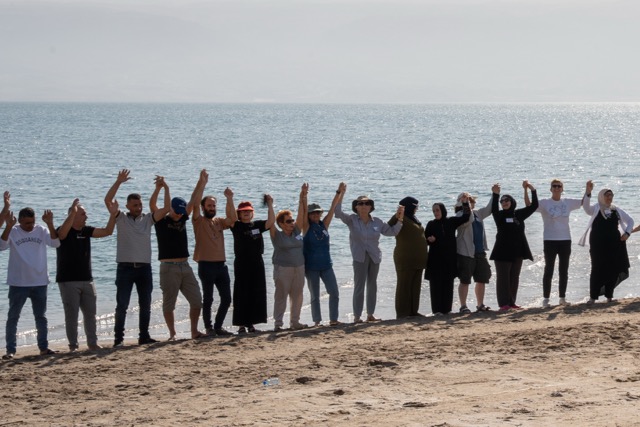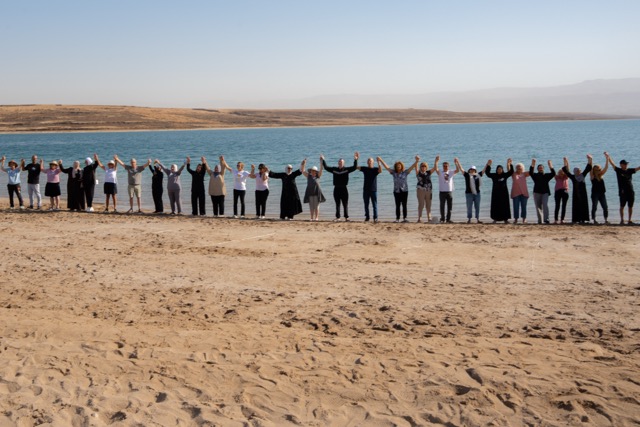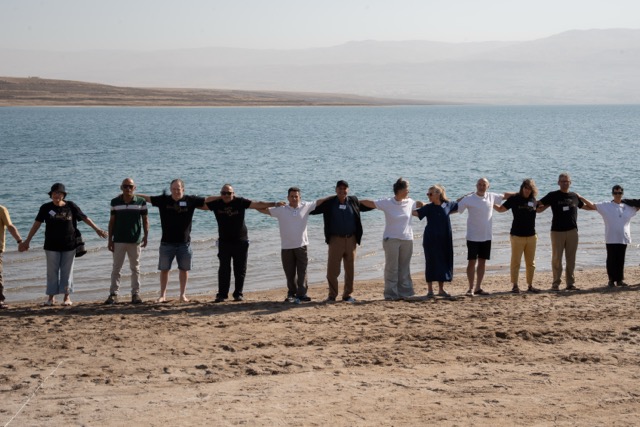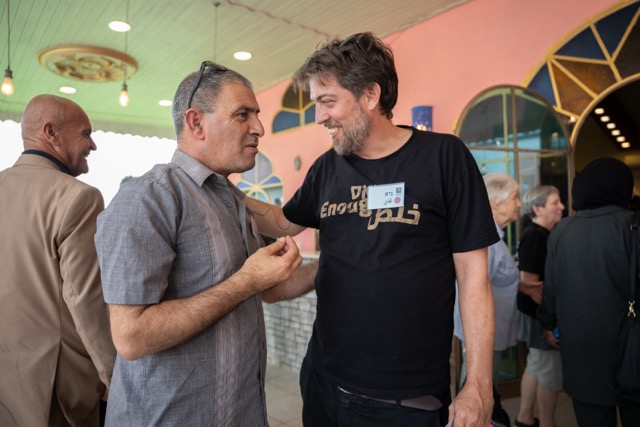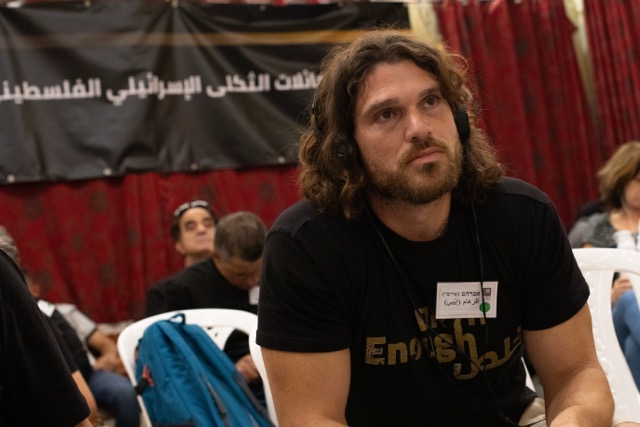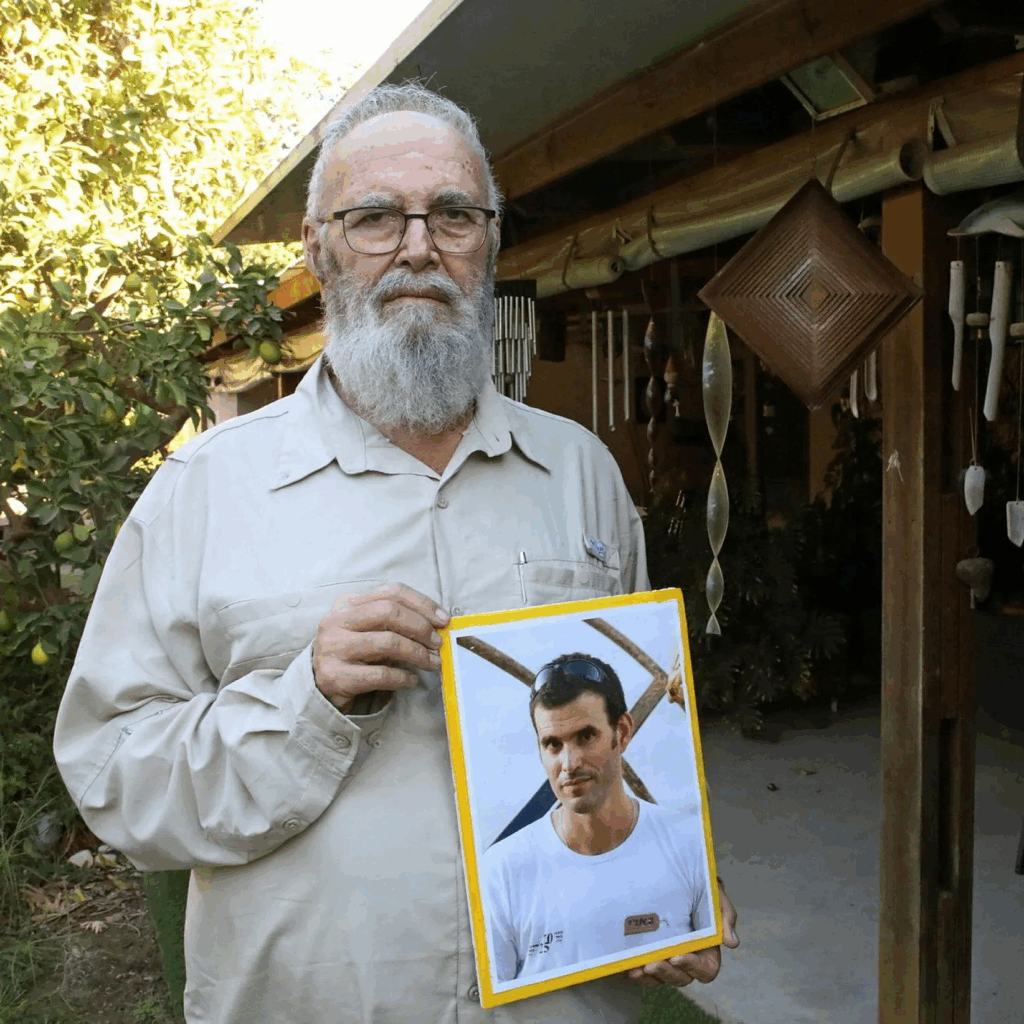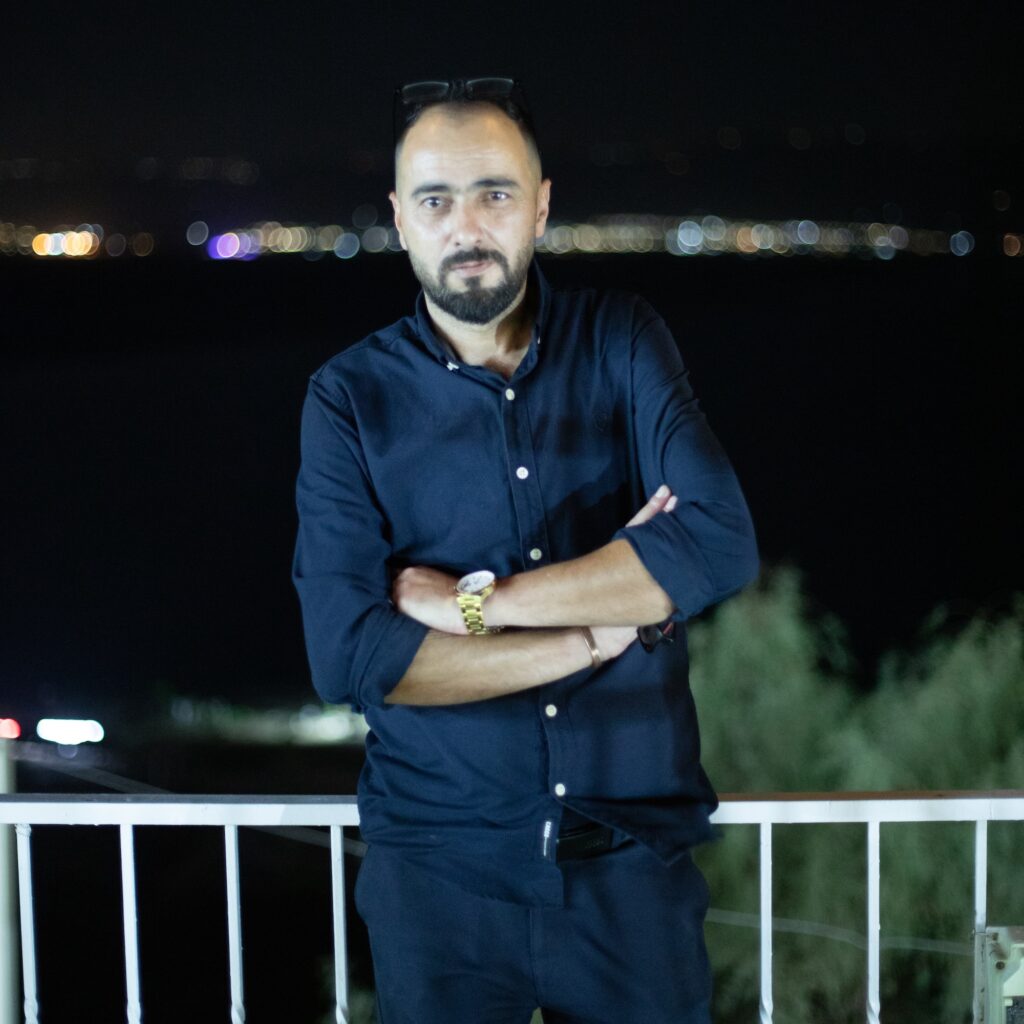Changing Minds One Heart at a Time
Shiri Ourian
Executive Director
American Friends of the Parents Circle – Families Forum
This article was published in the Winter 2020 edition of Perspectives: The Magazine of Promised Land Museum.
Some have called it the saddest—and most optimistic—organization. Its own leadership says it’s the only organization that doesn’t want any more new members. The Parents Circle – Families Forum (PCFF), is a joint Israeli and Palestinian organization made up of 600 bereaved families. Their common bond is that they have lost a close family member to the conflict. But instead of choosing revenge, they have chosen a path of reconciliation.
Through the different education and public awareness activities of the Parents Circle, the bereaved members have joined together to take hundreds of thousands of Palestinians and Israelis on their personal journeys of reconciliation. It is often raw and always emotional. But out of these interactions, comes change. Not the kind of change that makes headlines, but a more personal and profound shift in perspective.
To lay the groundwork for lasting peace, PCFF provides, first and foremost, the opportunity for Israelis and Palestinians to meet. In the context of conflict, the two peoples remain alienated from one another, a separation that is fortified by feelings of fear, hatred, mistrust, and dehumanization of the other. Rather than allow bereavement to serve as yet another reason to hate, PCFF’s activities aim to use the personal stories of bereaved Israelis and Palestinians to prevent further bereavement on both sides, to demand a peaceful resolution to the conflict from policymakers, and to educate and inspire the public towards reconciliation.
A time of low political expectations and few diplomatic options is the critical time for making long-term investments in Israeli-Palestinian relations. The core goal of the PCFF programs is to help people move beyond exclusive truths, contribute to mutual understanding and empathy and increase participants’ commitment to and hope for reconciliation and peace. PCFF’s primary methodology is to build trust, increase knowledge of the “other side” and encourage reconciliation between Israelis and Palestinians through creative, educational and experiential programs like Dialogue Meetings and the Parallel Narrative Experience. Participants have opportunities to gain a better understanding of each side’s narrative and the possibility of peace.
Led by trained staff and inspired by PCFF’s bereaved members—those who have lost the most yet are able to reconcile—these activities produce emotional breakthroughs for participants who could not previously imagine there is a partner for peace on the other side. PCFF’s 1000+ Narrative Experience alumni work alongside members on education and public advocacy to raise awareness of the cost of violence and alternatives to the current reality. Our public events include co-hosting an alternative Memorial Day Ceremony, promoting voices of women in peacebuilding solidarity visits to marginalized communities and more.
Being a joint organization allows us to respond quickly and sensitively to political and social events impacting the conflict in both societies. PCFF is guided by a joint Israeli and Palestinian Board, ensuring accountability, transparency and ethical operations, and directing the joint leadership. As a joint organization, PCFF also has two co-Managers and maintains offices in both Israel and Palestine. Our professional Palestinian and Israeli staff are in regular communication and work together on all projects and programs.
The PCFF hopes for the day that political leaders will reach an agreement for peace. Reconciliation between the Israeli and Palestinian people is not only a catalyst for demanding such a peace agreement but also will ensure that peace is sustainable.

